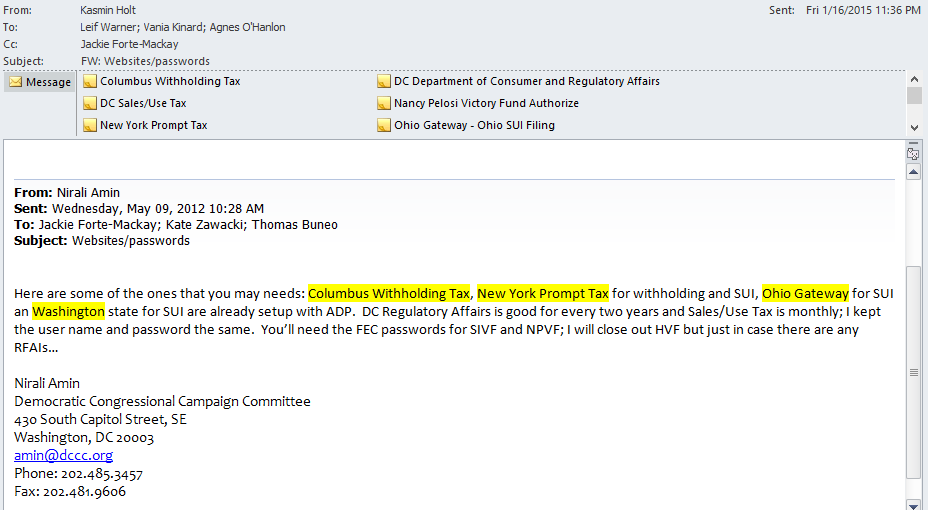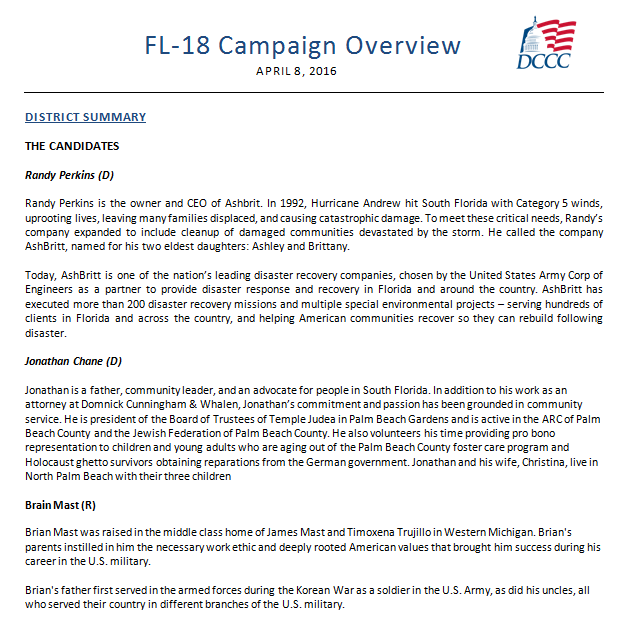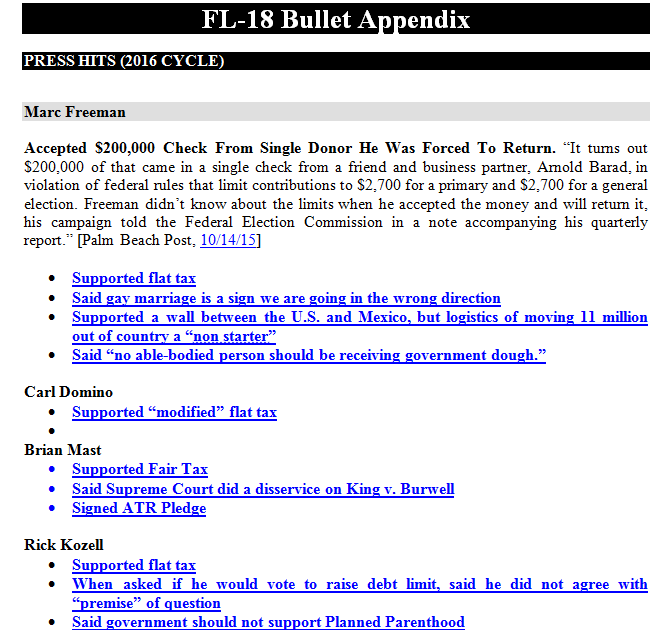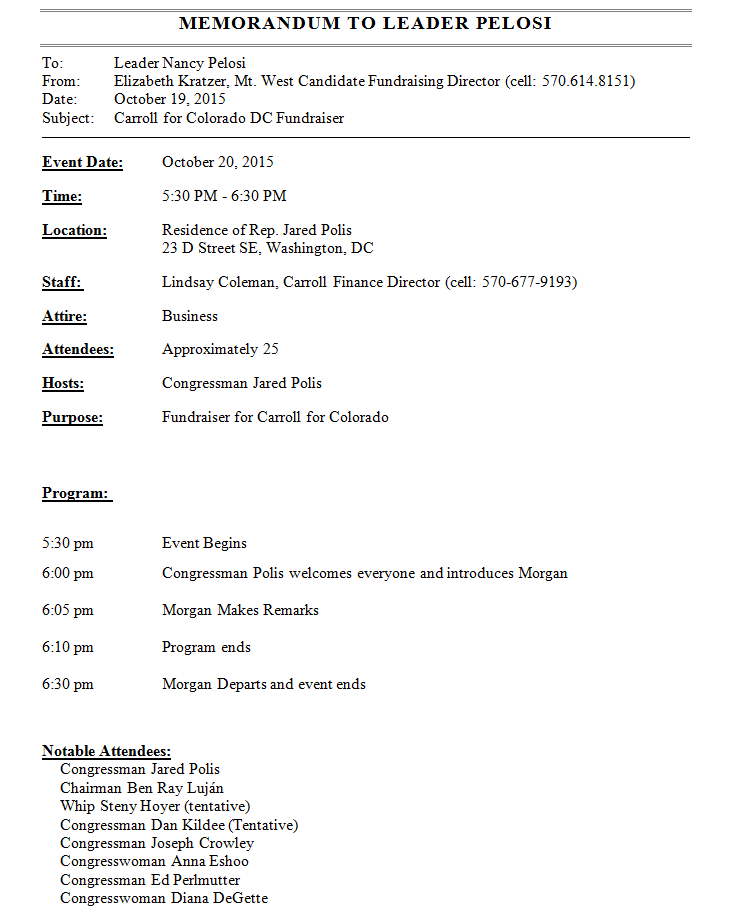Emails: Dem Officials Wary of Legal Campaign Against Exxon
Internal communications show unease about New York AG’s court battle
FreeBeacon: Democratic officials who enlisted in a legal campaign against the country’s largest oil company privately expressed misgivings about the effort and its crusading leader, New York Attorney General Eric Schneiderman, internal emails reveal.
Schneiderman recruited nearly 20 other state attorneys general last year to participate in a coordinated legal campaign against ExxonMobil. However, Schneiderman appears to be the only official still actively pursuing the effort.
Emails obtained by the Energy and Environment Legal Institute through open records requests help explain their apparent lack of enthusiasm. The emails show that AGs involved in the effort grew wary of Schneiderman’s aggressive tactics.
His campaign centers on allegations that Exxon lied to shareholders and the general public about the financial dangers posed by climate change. Schneiderman has subpoenaed the company, and other states have followed suit, though many have either withdrawn their probes or put them on hold.
Ahead of a March meeting that kicked off the effort, some AGs were already expressing unease about their involvement.
“Just talked with Tom,” an aide to Iowa AG Tom Miller wrote to a colleague on March 25, a few days before Schneiderman convened AGs involved in the effort. “He thinks we may be locked in on this and have to ride it through.”
Related reading: Trump: Obama Bribed New York’s Attorney General To Sue Trump University
There is no evidence to support Trump’s claim.
After the meeting, another Miller aide described Schneiderman as “the wild card for all.”
In a statement accompanying the release of those and other emails, E&E said they demonstrated the legal weaknesses underlying New York’s legal strategy.
“The investigations began with Schneiderman and in just five short months he has watched his support collapse, such that he once again stands alone in his crusade to harass his political opponents under the guise of upholding the law,” the group said.
As the anti-Exxon efforts progressed, other AGs’ offices expressed concern at their apparent scope. They worried Schneiderman was publicly enlisting them in a campaign in which they were not sure they would—or could—participate.
When his office circulated a draft press release announcing the AGs’ collaboration on the Exxon campaign, Michael Kelly, a spokesman for Virginia Attorney General Mark Herring, tried to rein in some of its language.
“At this point, we don’t know what we’re going to agree to, or really what Virginia’s laws and our authorities could allow us to do, so it makes me nervous to say we’ve ‘agreed to work together on key investigations,’” Kelly wrote in an email to Schneiderman staffers.
“Is there any room to dial that one back a notch?” he asked.
An aide to Vermont’s attorney general had similar concerns. When Schneiderman’s office drafted a “thank you” note to AGs who had participated in the March meeting, the aide recommended striking language that implied that some AGs would be conducting their own Exxon probes.
“On the ‘Exxon/Fossil Fuel Company Investigations’ can we drop the word ‘investigations’ from that?” he asked. “Not all of the states have yet opened a formal investigation and there is some sensitivity here (and I suspect in some other states) to saying or indicating we have.”
In fact, New York is the only state still pursuing an Exxon investigation thanks to the wide legal latitude granted by the state’s Martin Act, which gives Schneiderman broader investigative powers than other state AGs.
“Exxon is not really facing a blitzkrieg,” noted environmental activist Bill McKibben, an outspoken proponent of prosecuting Exxon, in a June column. “Only two states have really had the courage to take on what’s been the planet’s most profitable company.”
The other state McKibben referred to was Massachusetts. However, even Massachusetts’ subpoena of Exxon is on hold.
The U.S. Virgin Islands, which subpoenaed Exxon and the Competitive Enterprise Institute, a think tank that attorney general Claude Walker accused of abetting fraudulent conduct, withdrew both measures in the face of legal opposition.
“They were in over their head,” Vermont Law School professor Pat Parenteau said of Walker’s legal campaign “They were going to get pounded and it’s good they are off the field.”
Schneiderman’s office did not return a request for comment.



























